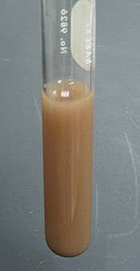Teaching
Courses I have taught include the following:
CIVE 2334: Environmental Engineering: Principles, Technology, and Sustainability
Focuses on the protection and management of the environment and the engineering methods to control environmental quality problems. Topics include assessment of environmental quality, introduction to water and wastewater treatment technologies, air pollution control technologies, solid waste management, and global atmospheric change.
CIVE 2335: Environmental Engineering Chemistry
Covers chemistry principles required for describing chemical processing of elements in natural systems, the distribution of pollutants in the environment, and chemical use in engineered treatment systems. Focuses on equilibrium thermodynamics and equilibria for acid-base, gas-water, precipitation-dissolution, metal complexation, oxidation-reduction, and sorption reactions. Discusses specific applications to pollutant reactions in surface waters, ground waters, soils, drinking water treatment, wastewater treatment, and the atmosphere.
CIVE 4534: Water Treatment Systems Design
Continues CIVE 2334. Concentrates on unit operations; unit processes; and related fundamental design of physical, chemical, and biological water and wastewater treatment systems, using both lectures and laboratory instruction. Topics include aeration systems, activated sludge, fixed-film biological treatment, gas transfer, reaction kinetics, reactor modeling, coagulation, flocculation, sedimentation, filtration, and subsurface disposal system design. Includes project component.
CIVE 4535: Lab for CIVE 4534
Accompanies CIVE 4534. Covers topics from the course through various experiments.
CIVE 5300: Environmental Sampling and Analysis
Introduces the theory, application, methodology, and instrumentation used in planning, sampling, and analyzing the environmental contaminants in air, water, and soils. Emphasizes instrument selection and quality control, including documentation, calibration, data analysis and interpretation, and sample management.
CIVE 7250: Environmental Chemistry
Examines applications of chemistry to environmental engineering. Covers properties of water and pollutants, acid-base reactions, pH, alkalinity, equilibrium chemistry, chemical kinetics, chemical thermodynamics, coordination chemistry, precipitation-dissolution reactions, surface chemistry, adsorption-desorption, redox reactions, and organic chemistry as it relates to the environment. Includes relevant laboratory exercises such as colorimetry, gravimetric, and electrochemical methods; atomic absorption spectrophotometry; and ion and gas chromatography. Requires one semester of undergraduate chemistry.
CIVE 7255: Environmental Physical/Chemical Processes
Environmental chemistry describes chemical principles of water and pollution within natural and engineered systems, such as water & wastewater treatment processes and the fate of pollutants in the environment. Basic concepts in aquatic chemistry reactions are addressed including acid-base, precipitation, dissolution, metal complexation, oxidation-reduction, and sorption reactions for inorganic and organic water contaminants. Chemical principles of equilibrium, kinetics, and thermodynamics are applied to solve water contamination problems. Laboratory exercises supplement theory.
